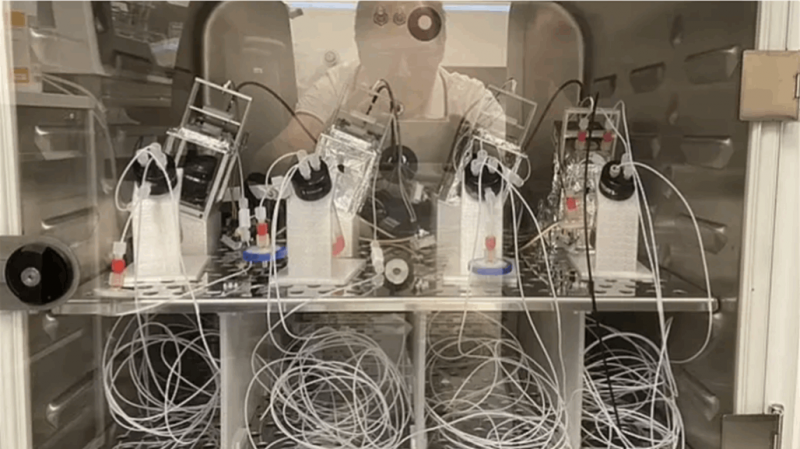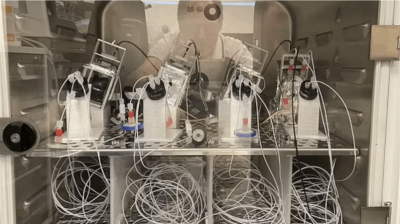A group of scientists has announced their success in using human brain cells to create a supercomputer with exceptional specifications and capabilities, which can be referred to as a "live computer" or "biocomputer" due to its significant intelligence derived from humans. This innovation was achieved in Sweden, where scientists claim they managed to cultivate human brain cells in the laboratory and used them to produce this intelligent computer.
Scientists say this superdevice could potentially help alleviate the energy crisis that the world is facing, according to a report by the British newspaper "Daily Mail." The report states that the device consists of 16 organic parts, or clusters of brain cells cultivated in the lab, which communicate information amongst themselves. These parts function similarly to a traditional computer chip, sending and receiving signals through their nerve cells that act like circuits. What makes it distinctive is that the living machine uses significantly less energy, as living nerve cells can operate with a million times less energy than current digital processors.
When comparing the new device to the best computers in the world, scientists found it to have equal speed and a memory capacity that is one thousand times greater. It also surpasses the human brain, which utilizes between 10 to 20 watts, whereas the computer consumes 21 megawatts.
This live computer was developed by scientists at "Final Sparks," a company focused on finding solutions using biological neural networks. Dr. Fred Jordan, co-CEO of Final Spark, a startup concentrating on biological neural network solutions, stated that this concept is common in science fiction, but there has not been a substantial amount of real research on it. He mentions that the "organisms" used to develop the device are small self-organizing 3D tissue cultures made from stem cells.
Final Sparks’ small brains are made up of approximately ten thousand living nerve cells, each about 0.5 mm in diameter. The organisms are trained, and when they perform tasks correctly, they receive a flow of chemicals as a reward. It is known that the world is facing an energy crisis due to fuel shortages, supply chain disruptions, geopolitical tensions, and the transition to renewable energy. Moreover, the rise of artificial intelligence is expected to consume 29.3 terawatt-hours annually (one terawatt equals one trillion watts), and scientists believe this biocomputer could help eliminate this crisis.




